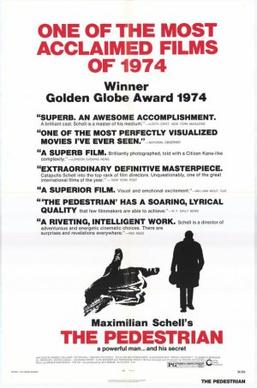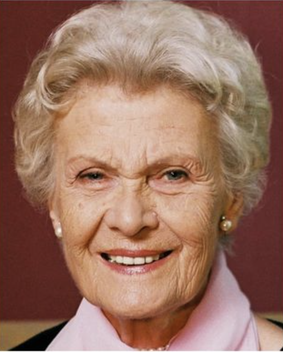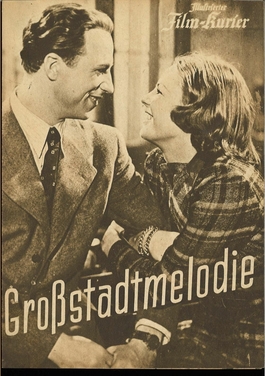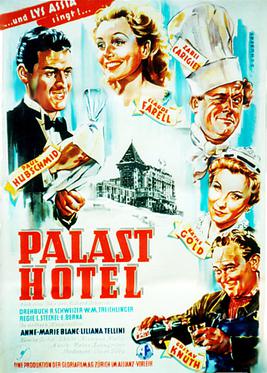Story
The Film was based on a novel by Rudolf Bolo Maeglin and based on the story of the real Gilberte de Courgenay (actually Gilberte Montavon), who was a waitress in a hotel in Courgenay, a small town near the Swiss-French border. She served thousands of Swiss soldiers that were stationed in Courgenay during the First World War, when the neutral Switzerland had to protect its borders. Hanns In der Gand made the song La petite Gilberte de Gourgenay by Robert Lustenberger and Oskar Portmann from the Winter 1915/16 very famous across Switzerland. The popularity of this song quickly resulted in Gilberte becoming an idol for the soldats that had to keep watch far from home and their families.
The film is a love story around Gilberte de Courgenay (played by Anne-Marie Blanc). In the winter of 1915/16 the artillery battalion 38 is sent to Courgenay. Initially assuming that the war will soon be over, they're disappointed when they hear that they won't be able to celebrate Christmas at home. Gilberte organises a Christmas celebration for the soldiers and so becomes their idol. Secretly, she loves Peter Hasler (Erwin Kohlund), who is upset because his fiancee Tilly (Ditta Oesch) is not answering his letters.
When a colleague of Hasler has to travel to Berne with a sick horse, he finds out why: Tilly's rich father had seized all the letters from Peter because he thought that he was not appropriate for her. Tilly immediately travels to the Jura when she discovers this.
She finds Peter just during the most famous part of the film: When he sings La petite Gilberte in the Hôtel de la Gare in Courgenay adoring Gilberte. But Gilberte steps back and leaves Peter to Tilly.

The film industry based in Switzerland dates to the 1930s. It is influenced by the neighboring countries of France, Germany and Italy, with which it shares languages. Before the mid-1960s Swiss films were often sentimental, but the French New Wave led to more experimental cinema.
Viktor Giacobbo is a Swiss writer, comedian and actor.

The Pedestrian is a 1973 film directed by Maximilian Schell. It is about the trial of an elderly war criminal. The film was a co-production between companies in Germany, Switzerland and Israel; the movie was distributed in the United States by Cinerama Releasing Corporation.

Sibylle Blanc is a French-speaking Swiss actress, writer and director who is actively involved in theatrical, film, television and radio productions in her native Switzerland as well as in nearby France.

Anne Cuneo was a Swiss journalist, novelist, theatre and film director and screenwriter.
Franz Schnyder was a Swiss film director and screenwriter. He directed 15 films between 1941 and 1968. His film Der 10. Mai was entered into the 8th Berlin International Film Festival.

The spiritual national defence was a political-cultural movement in Switzerland which was active from circa 1932 into the 1960s. It was supported by the Swiss authorities, certain institutions, scholars, the press and intellectuals. Its aim was the strengthening of values and customs perceived to be ‘Swiss’ and thus create a defence against totalitarian ideologies.

Anne-Marie Blanc was a Swiss film and television actress, style icon and was commonly referred to as "The Grand Dame of the Swiss Film". Her granddaughter is the actress Mona Petri.

Rudolph Bolo Mäglin, was a Swiss journalist, publicist, writer, poet and cabaretwriter.

Heinrich Gretler (1897–1977) was a Swiss film and television actor, who also starred on stage at the Bernhard-Theater in Zurich.

The Prix Walo is a Swiss award given for showbusiness.
Hermann Haller was a Swiss film editor. He also directed four films.

The Zürich Engagement is a 1957 West German comedy film directed by Helmut Käutner and starring Liselotte Pulver, Paul Hubschmid, and Bernhard Wicki. A young woman working at a dentist's office falls in love with one of the patients. She writes down her fantasies about him, but problems arise when her words are discovered and are turned into a screenplay for a new film. It is also known by the alternative title The Affairs of Julie.

Melody of a Great City is a 1943 musical drama film directed by Wolfgang Liebeneiner and starring Hilde Krahl, Werner Hinz and Karl John. A young woman moves to Berlin to work as a press photographer.

Palace Hotel is a 1952 Swiss-West German drama film directed by Emil Berna and Leonard Steckel and starring Paul Hubschmid, Käthe Gold and Anne-Marie Blanc. It was made at the Bellerive Studios in Zürich. The film's sets were designed by the art director Jean d'Eaubonne.

Constable Studer is a 1939 Swiss crime film directed by Leopold Lindtberg and starring Heinrich Gretler, Adolf Manz and Anne-Marie Blanc. The film is based on a novel by Friedrich Glauser. It was followed by a sequel Madness Rules in 1947 with Gretler reprising his role.

A Spot of Bother, is a French comedy drama film directed by Alfred Lot and starring Michel Blanc, released in 2010, and based on the 2006 novel by the English writer Mark Haddon A Spot of Bother. It concerns the family crisis of a hypochondriac middle-aged man, his wife and grown-up children.

Mathilde Alanic was a French writer of sentimental novels and short stories. Her work appeared in Les Annales politiques et littéraires, L'Eventail, Le Magasin pittoresque, Musée des familles, Le National illustré, La Petite Illustration, Le Petit Journal, Le Petit Parisien, Revue de l'Anjou, and other journals. Alanic was a recipient of the Montyon prize, Jules-Favre prize, Sobrier-Arnould prize, and was promoted Chevalier, Legion of Honour. She died in 1948.

Gilberte Montavon de Courgenay was a Swiss waitress who became a national symbol of spiritual national defense during World War I and World War II. She entertained Swiss Army troops at the Hôtel de Gare in Courgenay, which was owned by her family, and became popular with the soldiers. In 1917, the composer and folklorist Hanns In der Gand gave a concert at the hotel and performed his new song La petite Gilberte, written about Montavon. The song was adopted by the army to boost morale throughout the war. Montavon inspired Rudolph Bolo Mäglin's 1939 novel Gilberte de Courgenay and his play of the same name. Two films, August Kern's Marguerite et les soldates in 1940 and Franz Schnyder's Gilberte de Courgenay in 1941, were based on her life.
















